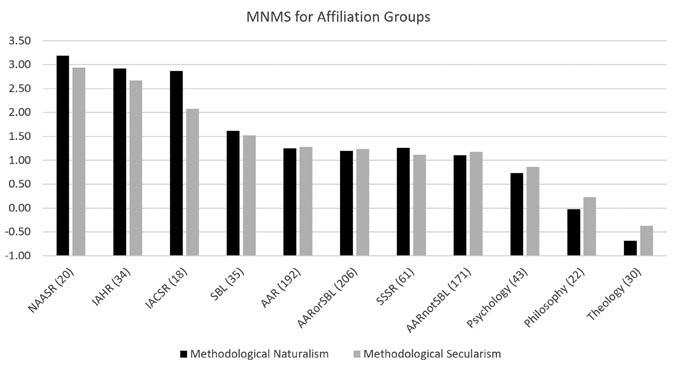
Researchers and scholars are typically and rightly identified with the methods they employ: anthropologists with their immersive field observations, archaeologists with their digging tools and dating methods, astronomers with their telescopes, and nuclear physicists with their atom-smashing, matter-creating particle accelerators. Less obvious but arguably as important to each field of research are deeply ingrained values and norms that govern and guide research, often making possible otherwise unlikely forms of cooperation that are essential to fruitful and progressive research. This article provides an analysis of survey data we collected that explores the methods and values that guide research in academic societies dedicated to the study of human religion. While there was considerable convergence across academic societies regarding some values, there were stark differences with respect to whether methodological naturalism and methodological secularism are regarded as important scholarly values.
For other insights that can be gleaned from this survey data about the methods and values that guide the academic study of religion, check out the full article. The abstract follows below.
The Values in Scholarship on Religion (VISOR) project collected data on the preferred methods and values of scholars in the academic study of religion. This dataset supports comparisons between members of the American Academy of Religion (AAR) and partner organizations, such as the North American Association for the Study of Religion (NAASR), as well as members of the Society for the Scientific Study of Religion (SSSR). The AAR-partner sample differs from the SSSR sample in consistently preferring humanities over empirical approaches. Both samples were modestly aligned with the secular academy in rejecting theological claims as evidence. The subgroups within the AAR-partner sample that were affiliated with the International Association for the History of Religions (IAHR) were the most firmly committed to secular approaches and evidence. These findings indicate the range of perspectives currently present in the big-tent AAR, which deliberately embraces theological scholarship as well as secular religious studies research.
